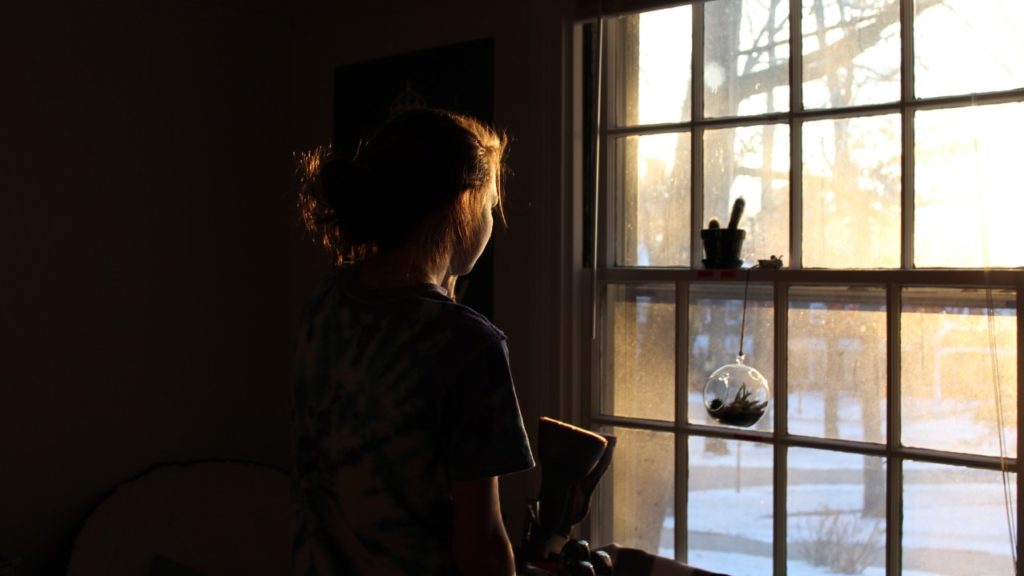In 2020, I stumbled upon a headline that didn’t surprise me, but certainly was unwelcome news: CDC Survey Results Suggest That 1 in 4 Young Adults Have Contemplated Suicide During Pandemic. Even if you haven’t had suicidal thoughts, perhaps you are experiencing increased anxiety or depression in this season of national and global unrest. I’ll admit, I have noticed some of the negative effects current events are having on my mental health.
Specifically, I find my thoughts drifting into some bleak existential territory. My anxiety isn’t doing great, either. As I was just beginning to see some improvements in this area, the coronavirus pandemic brought new fears and worries that I wasn’t expecting. I’m guessing I’m not the only one who has had a few breakdown moments in the last few months.
The reality for young adults
The future of Gen Z and millennials was looking problematic enough even before a pandemic. Last December it was reported that millennials only owned 3.2 percent of the nation’s wealth, despite being America’s largest generation. Yet millennials and Gen Z are often criticized for not accomplishing the same things or reaching the same milestones as our parents or grandparents did by the same age.
We all know that we didn’t choose these life circumstances. We didn’t choose to have a global pandemic happen in the middle of our young adulthood. Neither did we choose a broken political system that provides less than ideal candidates (and parties) to lead our already divided country, or an outrageously expensive health care system, or a structure for higher education that requires students to begin their adults lives with a massive amount of debt. But we have to deal with these things — and it’s becoming overwhelming for many of us.
The events of this year have pushed young adults from being the “burnout generation” to a generation that is seriously beginning to ask if an early death is preferable to our current reality. How did we get here? As counselor Geremy Keeton observes,
The 18-24 age group is in a highly developmental stage of burgeoning dreams, educational pursuits, careers, aspirations, fresh expectations and identity formation … all based in new and unfolding social connections … yet, all these are stalled out or hampered during COVID-life shutdown. Without something spiritually firm under our feet, and deeper connections beyond our current circumstantial losses, hopelessness sets in.
Hope for the hopeless
When I did my chaplain internship earlier this year, I learned about the HOPE assessment — a tool chaplains use to identify a patient’s sources of hope, comfort and strength. It looks like this:
H — What are your sources of Hope?
O — Are you a member of an Organized Religion?
P — Do you have any Spiritual Practices you find helpful?
E — Do your beliefs have any Effects on the Care you are receiving?
In this time where hope seems impalpable, it might be beneficial to take a piece of paper and write down your answers to the first three questions.
In my encounters with patients, I found that a lot of them would point to family and friends as sources of hope. It was those who expressed strong feelings of loneliness that tended to have a more significant sense of hopelessness. Unfortunately, this pandemic has seriously hampered our ability to do community in the ways we’ve always done it. Be safe, but find ways to connect with a community. You may have to get creative, but we all need community. We cannot face the realities of the present or the unknowns of the future alone.
Additionally, find spiritual practices that work for you. Whatever helps you recognize the presence of Christ (our ultimate source of hope) in your life — do it. Perhaps it’s a walk in nature or reading some ancient Christian writings or Christ-centered mindfulness meditation or time in prayer. Whatever it may be, choose a practice that you can commit to doing often.
Finally, don’t be afraid to reach out for help. You may want to talk to a friend, family member or trusted pastor or mentor. Likewise, there is no shame in seeking out professional help. If you are feeling a sense of hopelessness and would like to talk to someone, Boundless is a ministry of Focus on the Family, which offers a one-time complimentary consultation with a licensed professional Christian counselor. To reach our counseling service by phone, call 1-855-771-HELP (4357) weekdays 6:00 a.m. to 8:00 p.m. (Mountain Time). Please be prepared to leave your contact information for a counselor to return a call to you as soon as possible. The consultation is available at no cost to you. You may also reach our counselors online by filling out our Counseling Consultation Request Form.
Remember, you are not alone. In fact, by sharing our hopes and fears, we encourage others to do the same. What are your sources of hope right now? How are you struggling? How can we pray for you? Feel free to comment on social, DM us on Facebook or Instagram or send us an email.
As Christians, we know we’re not defined by statistics; we’re defined by who God says we are. Let’s help each other lean into that truth today.
Copyright 2020 Focus on the Family. All rights reserved.












